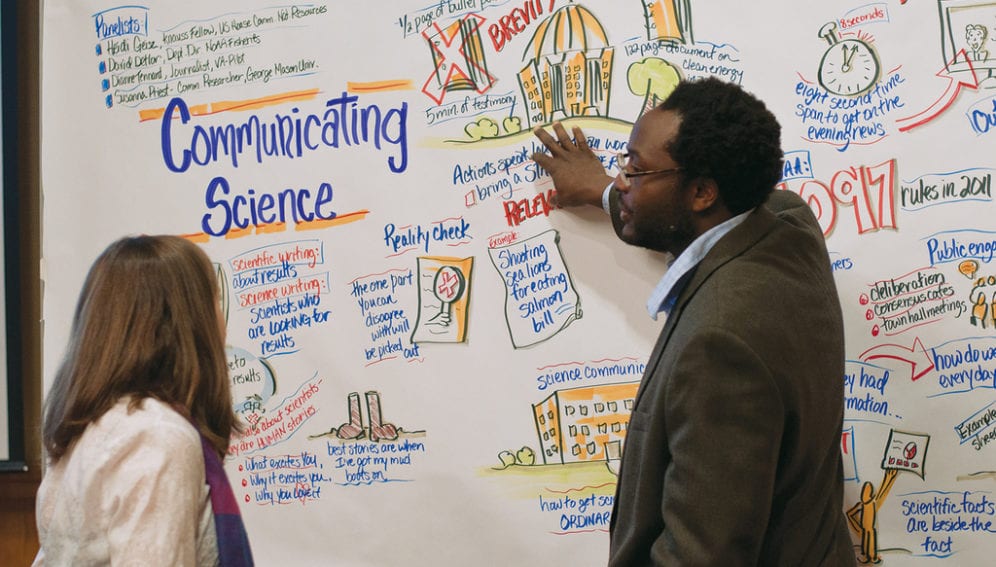By: Lou Reade
Send to a friend
The details you provide on this page will not be used to send unsolicited email, and will not be sold to a 3rd party. See privacy policy.
Young researchers could soon be helping to shape science policy in developing nations, with a number of them contributing to the UN’s recent prototype Global Sustainable Development Report — a planned one-stop shop for science advice.
The report’s ‘science digest’ section provides overviews of subjects such as ocean acidification for senior government officials and policymakers. It was compiled and peer reviewed by young researchers, with input from more experienced scientists.
“If a wide group of young researchers were mobilised in this way across the world, a very useful library of high-quality briefs could be developed, possibly in a range of languages,” says the report.
Nargis Artyushevskaya, who worked for UNICEF (the UN Children’s Fund) in Tajikistan for eight years before recently completing a masters in environmental studies at the State University of New York (SUNY), United States, was involved in peer reviewing the digests.
“It was not just reading and commenting. I had to do my own research and ask challenging questions,” she says. “I knew it would be painful, as people don’t like criticism.”
The idea for recruiting young people to help with the report came from Artyushevskaya’s supervisor at SUNY, David Sonnenfeld. Along with Bettina Bluemling, then a researcher at Wageningen University in the Netherlands, he offered graduate students to the UN as ‘externs’.
Sonnenfeld says that the UN liked the international mix of the students, who included natives of Indonesia and Latin America as well as Tajikistan.*
“The UN want to be as inclusive as they can,” he adds.
Sonnenfeld says that this year they anticipate 20 graduate students working as ‘externs’ at the UN, an increase on the 14 who participated in the prototype report last year.*
And the remit has extended beyond reports on emerging areas in sustainability science.
“They will also be looking at financial instruments as effective tools in achieving sustainability goals,” he says.
Claudio Huepe Minoletti, an economist at Chile’s Diego Portales University who contributed to the report, says it could act as a ‘translator’ as it was put together by people with knowledge of the different languages of science and policy.
*This article was corrected on 3 October 2014 to clarify that the students come from the two universities, and that not all were Sonnenfeld's students.














